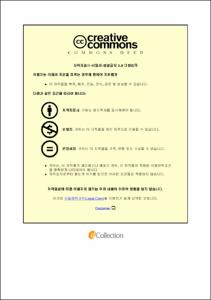인공지능 기반 종양학 임상 의사결정 지원 시스템: 다기관 확장을 위한 기술적 문제 및 과제
- Abstract
- An essential aspect of care for patients with cancer is counseling them in weighing their individual prognosis and selecting appropriate treatment strategies. Although the common statistical models familiar to clinicians can determine prognostic factors through observations in samples and evaluate the relative risk of cases with specific prognostic factors, it is difficult to predict the individual prognosis of a patient. Recently, the medical field has experienced increased attempts to develop a clinical decision support system (CDSS) using artificial intelligence technology. However, developing personalized prognostic prediction models with various, complex information and ensuringits availability to other institutions with different patient groups and characteristics, remain challenges yet to be overcome. In this thesis, In this thesis, a machine learning-based two-stage model that can recommend initial treatment option and predict overall survival in patients with hepatocellular carcinoma (HCC) was developed. In particular, this model was verified using external datasets obtained from eight medical centers in South Korea, and the technical issues, challenges, and strategies for multi-institutional usability were discussed.
For the first phase of this thesis, the model to recommend one of six treatments used for the initial treatment of HCC using 20 pretreatment key variables was developed and validated employing multi-center datasets. The recommendation was made by considering the results of ensemble voting classifier that was created using five machine learning classifiers that offered the best performance after testing several models. Further, several experiments on normalization and sampling techniques were conducted to improve the accuracy of the model. In addition, the performance of individual training using the dataset of each institution with those of external validation of the model trained with the internal dataset. Although the results of individual training showed higher accuracy. Consequently, providing a second treatment option along with the first, with its level of confidence, were found to be effective in extending this model to multi-centers with different preferences and policies.
For the second phase of this thesis, a model for survival prediction following initial treatment was developed. Overall survival for each patient was predicted employing a random survival forest model using initial treatment information in addition to 20 key variables used in the model for treatment recommendation. Survival prediction from individual training for each center exhibited similar or worse performance than those obtained from external validation in contrast to the results of the model for treatment recommendation. Furthermore, an experiment was performed to stratify the risk of each treatment using the proposed two-stage model by simulating how the survival rate changes according to the treatment recommendation results of the first stage
In the third phase of this thesis, specific scenarios demonstrating the applicability of this system in real clinical setting were presented. First, the possibility of employing this model as an alternative to a current staging system was investigated. The results of recommendation of this model and the Barcelona Clinic Liver Cancer (BCLC) staging system in group of BCLC C stage were compared. The agreement between the treatment recommended in this model and the treatment actually received was higher than the treatment recommended in the BCLC stage. Second, results of simulation for a case employing external datasets using two different models trained with dataset of two different centers were demonstrated. The result showed that for even patients with the same conditions the model can recommend different treatments and show different survival by reflecting the characteristics based on the dataset of each institution. These usage scenarios show examples of how this model can be extended and used in real clinical situations.
In conclusion, a machine learning-based two-stage model with 20 clinical variables to recommend appropriate initial treatment and sequentially predict overall survival for patients with HCC was developed. Furthermore, various experiments were conducted to apply this model to multiple centers in real clinical environment, and the results obtained were analyzed. This CDSS modeling is expected to provide practical utility to physicians and institutions with little experience in actual clinical settings.
- Issued Date
- 2022
- Awarded Date
- 2022-02
- Type
- dissertation
- Alternative Author(s)
- Kyung Hwa Lee
- Affiliation
- 울산대학교
- Department
- 일반대학원 의과학과 의공학전공
- Advisor
- 김남국
- Degree
- Doctor
- Publisher
- 울산대학교 일반대학원 의과학과 의공학전공
- Language
- eng
- Rights
- 울산대학교 논문은 저작권에 의해 보호 받습니다.
- Appears in Collections:
- Mechanical Engineering > 2. Theses (Ph.D)
- 파일 목록
-
-
Download
 200000604529.pdf
기타 데이터 / 2.57 MB / Adobe PDF
200000604529.pdf
기타 데이터 / 2.57 MB / Adobe PDF
-
Items in Repository are protected by copyright, with all rights reserved, unless otherwise indicated.